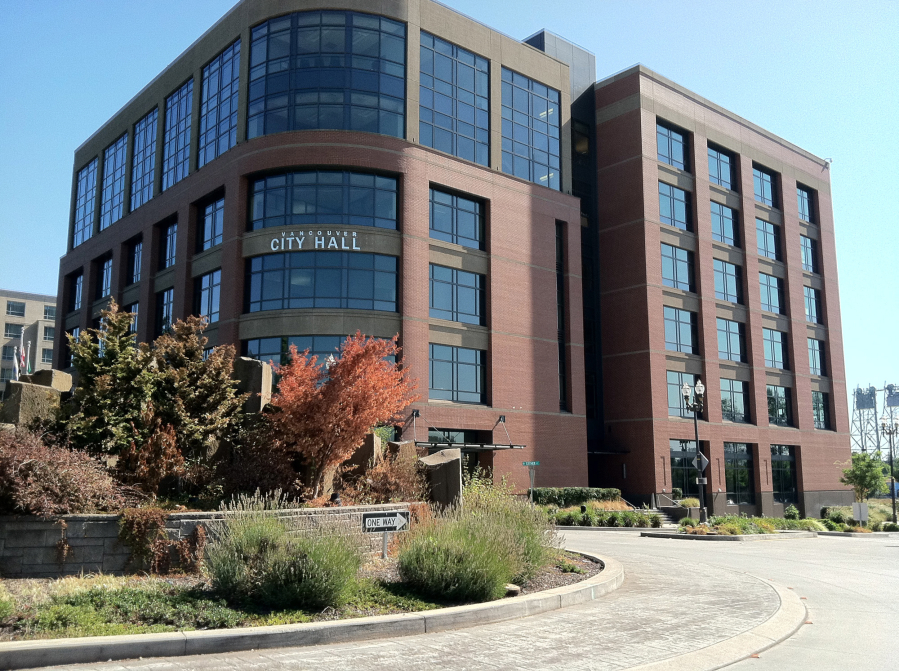In the span of two hours Monday, the Vancouver City Council covered three of the largest topics facing any government: population, public services and the city’s budget.
To be more specific, the council held workshops going over an update from the Clark County Commission on Aging, the 2017 Vancouver Fire Department service levels and the first 2018 supplemental budget proposal.
Here’s a quick look at those discussions.
Commission on Aging
Temple Lentz, member of the Commission on Aging, said at this point in time 1 in 6 residents are more than 60 years old. By 2030, that figure will jump to 1 in 4.
The commission was created in 2012 to evaluate and implement strategies to better the community’s support of its aging population. In 2017, the focus was on housing. Lentz said as a result of the commission’s work, Clark County implemented code changes to allow for more urban and rural accessory dwelling units. Camas and Ridgefield also changed their codes to better support affordable housing.
Looking forward, the commission will focus on transportation.
“We know transportation can raise or limit the ability, especially for those 60 and over, to connect with others and maintain their independence,” Lentz said.
Councilor Laurie Lebowsky said the city needs to think about transportation in a different way.
“Thinking about how it’s seamless,” Lebowsky said. Considering, for example, that someone might take a ride share to get to the light rail.
Councilor Ty Stober said he thinks there’s still a lot more the city needs to do about Americans with Disabilities Act-accessible sidewalks “as the council has heard me complain about and I’ll continue to do so,” Stober added.
Mayor Anne McEnerny-Ogle pointed to a need to support elder justice.
“As you’re looking forward please help us to see how we can be more watchful of elder justice issues,” McEnerny-Ogle said. “I know they’re happening around us but as with everything we need to be more sensitive and educated about it.”
Fire service
The big takeaway from 2017 is that the Vancouver Fire Department did not meet its priority 1 and 2 response-time goals, said Chief Joe Molina.
The standard set in 2013 asks for 90 percent of priority 1 and 2 calls to see a response time of seven minutes and 59 seconds or less. In 2017, the average time was eight minutes and 25 seconds. There were 11,847 calls, an increase of 7.3 percent from last year. In 2016, the average response time was eight minutes.
With marine calls the only other exception, the department is hitting the rest of its response goals. Priority 5 nonmedical calls, for example, are seeing response times more than five minutes faster than the 15 minute 59 second standard.
Molina said he wants to consider adopting a police response model, where priority 1 and priority 2 calls get service first and then queue priority 3 and 4 calls to respond when they can.
“That’s one initiative that would help us with this,” Molina said.
Relocating Fire Stations 3 and 6 would also help, he said.
Since relocating fire stations 1 and 2, response times in those areas have improved.
“It makes me proud to see we put those stations in the right spot,” he said.
Molina is talking with Vancouver Strong, an advisory group developing funding recommendations for the city, to consider funding for fire stations 3 and 6.
Supplemental budget
Compared to prior years’ supplemental budgets, the first 2018 supplemental is fairly small, said Natasha Ramras, Vancouver’s chief financial officer.
The first of two supplemental budgets proposes an increase of $10.6 million, bringing the revised 2017-2018 city budget to nearly $1.2 billion. The good news is the city ended 2017 with about $9.8 million in undesignated reserves.
Revenues continue to come in higher than anticipated, Ramras said. These funds come from the sales tax, utility tax, real estate excise tax and traffic and park impact fees.
The supplemental budget includes $3.9 million for new initiatives. These include $600,000 to renovate the new Grand Boulevard day center, $500,000 for facility repairs at Tower Mall and $300,000 to replace the police department’s record management system.
The city is also adding several positions. Those positions include a communications coordinator for visual content, a neighborhood parking enforcement program staff member and a senior construction inspector for the street fund.
Those who follow the budget closely may notice a $1 million reinstatement for the Tennis Center.
Previously, the council voted to eliminate the budget line for the Tennis Center because the United States Tennis Association would take over daily operations. Ramras said they hoped they wouldn’t need to show the center’s operational cost and revenue in their financials, but after further review they determined the budget line was necessary.
The proposed supplemental budget will come back to council for a first reading June 4, with a public hearing and vote set for June 18.




